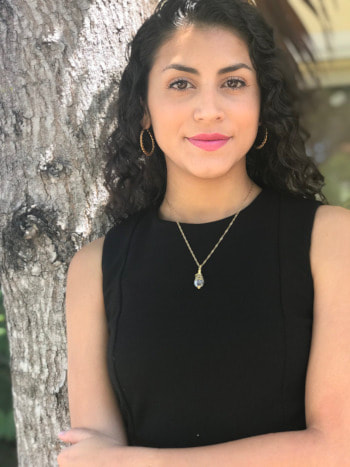"Do the Effects of Math Interventions Last Longer When Followed by a High-Quality Environment?"5/3/2019
PhD in Education student Daniela Alvarez-Vargas has been awarded a 2019 National Science Foundation Graduate Research Fellowship Program (NSF GRFP) Fellowship. Fellowships are awarded to graduate students whose proposed research has the potential to advance knowledge and understanding (intellectual merit) and benefit society/advance societal outcomes. Daniela will be focusing her research on the effects of math interventions. She will be advised by Associate Professor Drew Bailey.
Research Abstract Even the most effective math interventions have shown a fadeout of their original treatment impacts over time. A policy-relevant factor that may moderate the persistence of education intervention impacts is the quality of the environment following an intervention. We propose to explore two theories that make opposite predictions about how a high-quality subsequent environment might influence the persistence of intervention impacts. The theory of sustaining environments posits that a high-quality subsequent environment, which reinforces and builds the material learned during an educational intervention, should increase the persistence of intervention impacts, as it leads to more durable and transferrable learning for children who received the intervention. The contrasting catch-up theory claims that a high-quality subsequent environment will lead to faster learning for students who did not participate in the intervention helping them catch up to the performance of the students who did receive the intervention, thus diminishing the impact of the intervention. Support for both theories has been found, and both are likely at least partially true, but their relative magnitudes in real-world educational settings have not been systematically studied. To this end, I will ask the following research questions: (1) Does an intervention’s impact on student learning persist more when the intervention teaches material that will be covered in the subsequent classroom, or when it teaches material not covered later? (2) Does the long-term retention of math vocabulary relate to increased math achievement at the end of the school year? (3) Does spaced training extend the retention of math vocabulary into 6th grade? First, we will test the feasibility of administering a vocabulary intervention online with undergraduate students. Then a second feasibility pilot study will be conducted with our target population of 5th graders, followed by a mechanistic study to determine which conditions yield persistent math vocabulary retention. Comments are closed.
|
Resources for:
|
|


